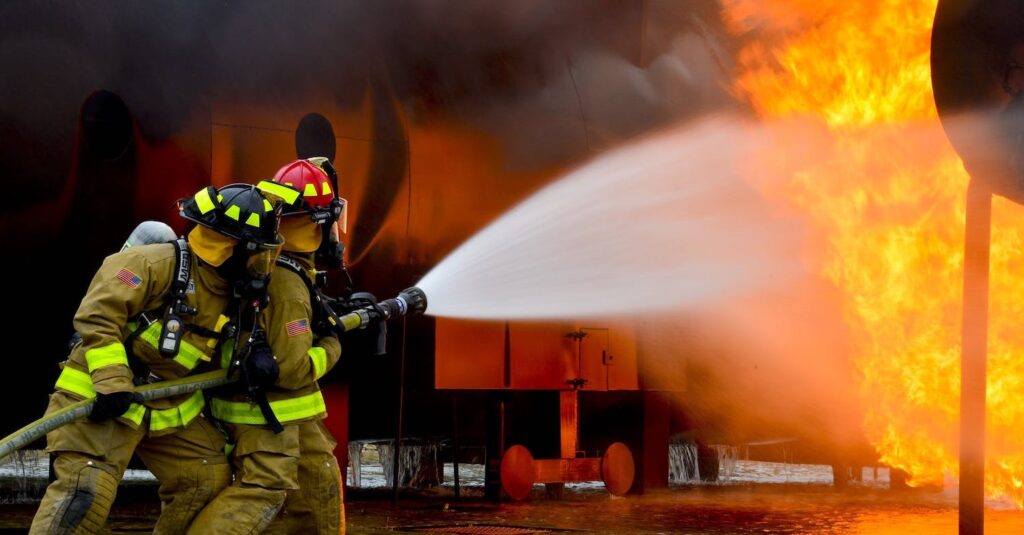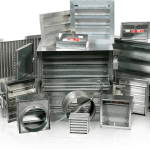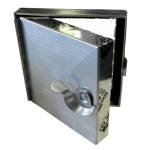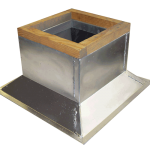
When it comes to fire protection, having a basic understanding of how the systems in your home or office work to keep you safe is essential. Knowing how your building works can help you escape dangerous situations while also minimizing the damage to property. Many of the products involved in preventing smoke and fire damage are components of your heating, ventilation, and air conditioning (HVAC) systems. Keep yourself as safe as possible by learning about fire protection products such as fire dampers and louvers.
What Is Fire Protection?
According to the National Fire Protection Association, “fire protection is the practice of mitigating the unwanted effects of potentially destructive fires.” The process involves studying fire-related damage as well as the systems that prevent and react in the event of an emergency.
Overall fire protection of a building or ship encompasses three components:
- Education
- Active fire protection
- Passive fire protection
The most important aspect of fire protection is education. Providing information to building owners, occupants, and first responders can help ensure everyone works together in case of an emergency. Ensuring building owners and contractors understand how louvers, fire dampers, and other fire protection products work during the building’s construction is crucial. If contractors don’t install the necessary equipment or don’t install the louvers or fire dampers correctly, it can lead to a loss of life and property. If owners don’t value the addition of these products, it could lead to dangerous situations in the future.
Understanding the difference between active and passive fire protection is another critical element. Passive fire protection involves products such as firewalls, fire doors, louvers, and fire dampers that function as preventative measures in the event of a fire. Active fire prevention involves systems or processes that require an action to suppress a fire, such as sprinklers, fire alarms, and firefighters.
What Are Fire Dampers?
If you’re not familiar with HVAC systems, you’ve probably never heard of fire dampers, let alone understand how they work. Thankfully, that’s what we’re here for! Fire dampers are a type of passive fire protection products that contractors install in HVAC ductwork to help prevent a fire from spreading. Contractors use fire dampers in partnership with fire-resistance walls.
To understand how fire dampers work, imagine two offices that share a wall. In the event of a fire, the wall itself prevents the fire from spreading if it is fire-resistance rated. However, offices typically share heating and air conditioning systems and have ductwork in the ceiling that connects the offices. If a fire starts in one office, the wall blocks the fire until it reaches the ductwork. The fire and smoke can then access the other rooms connected through the ductwork and cause extensive damage.
Contractors install fire dampers within the HVAC ductwork to help prevent the spread of the fire. When the temperature around the fire dampers increases, a latch melts, causing the damper to shut and prevent the fire from spreading.
What Are Louvers?
Louvers are similar to window blinds and create airflow within a space while preventing rain and direct sunshine. Louvers feature fins or slats that are either fixed to control the amount of air or sunlight that comes into the space.
Louvers are a standard addition to many industries including:
- Construction: Contractors recommend installing louvers in homes that experience frequent hurricanes to allow ventilation while protecting against blowing rain.
- Fire protection: Louvers help increase ventilation to prevent the buildup of dangerous gases or smoke.
When debating the best type of louvers to add to your building, there are three things to consider:
- Free area
- Water penetration
- Pressure loss
Free area is the amount of open space within a louver. You can calculate this number by subtracting the size of the blades and frame from the total open area, and then dividing it by the size of the overall wall opening. The best louvers allow the most air in, while keeping the most water and debris out. The most common percentages of free areas range from 35 to 60 percent.
Water penetration is another essential aspect to consider when installing louvers. Water penetration is the point that the louver will begin leaking and is measured by assessing the air intake velocity in feet per minute. Experts estimate the air intake velocity by applying air to a specific amount of water in front of the louvers to simulate rain and wind. The point of water penetration ranges from 300 feet per minute, which is very poor water resistance, to 1250 feet per minute, an excellent resistance.
Pressure loss, also known as louver resistance, measures the amount of pressure the louvers put on the air movement equipment behind them. Higher air pressure can damage HVAC fans and other equipment, so it’s essential to determine whether or not the louvers you’re using provide an acceptable level of resistance. The majority of manufacturers publish their louver resistance rates. The goal is to obtain the highest level of air moving through the louvers without water entering the space.
Construction of Louvers
Architects have used louvers in their designs for hundreds of years. In today’s world, companies make louvers from wood, metal, aluminum, or glass. Companies manufacture louvers in a variety of ways to combat location-specific concerns, such as to block debris in areas with high winds, water from hurricane-prone areas, and smoke in locations where there are frequent brush fires. Louvers can fit a variety of aesthetics, as well. Don’t sacrifice safety when enhancing the look of your home or office.
Lloyd Industries is an active manufacturer of fire dampers and other HVAC products with over 35 years of experience in the fire protection industry. Whether you’re looking for access doors, fire dampers, CRD boots, security bars, or smoke dampers, Lloyd Industries has you covered. If you’re looking for a company known for its quality, price, and customer satisfaction, look no further than Lloyd Industries!




